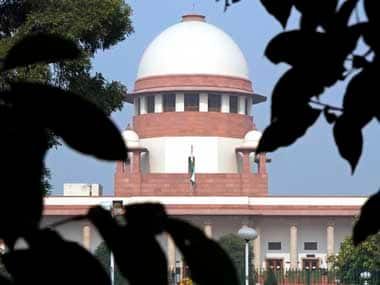The Supreme Court’s directive to the Union government and all state governments to grant bureaucrats fixed tenures and to insulate transfers and postings from political interference through the mechanism of a Civil Services Board has been greeted with populist acclaim. Unfortunately, it is a troubling order at several levels. And it certainly won’t lead to sweeping change in the nature of the bureaucracy. For a start, the Supreme Court is once again stepping out of its turf into the domain of the executive. It is not the business of courts to decide the mechanics of the functioning of the executive. Sure, frequent transfers of bureaucrats and excessive political interference in their appointment is a problem, but on the basis of which law or constitutional provision is the Supreme Court empowered to order fixed tenures for bureaucrats? The latest order from the Supreme Court is another ominous sign of “Government by judiciary”, which is unhealthy for democracy. Of course, the inept and weak UPA must share the blame for this judicial over-reach. It has destroyed institutions of the executive (like the bureaucracy). By creating a governance vacuum, it has voluntarily ceded its turf to the judiciary. It has no credibility left to claim it back.[caption id=“attachment_1206691” align=“alignleft” width=“380”]  Supreme Court of India. Reuters[/caption] Now, consider the danger of a future government which is politically weak but where bureaucrats are empowered by fixed tenures and autonomy on transfers and postings. India could then descend into a “rule by bureaucracy” which is as worrying as rule by judiciary. Neither judges nor bureaucrats are accountable to the people of India. Politicians may be far from competent and honest, but at least voters can end their tenures in office once in five years. In any case, even under the administrative system that has existed since independence (probably even before then), the bureaucracy has had the freedom to insulate itself from political interference. In fact, if senior civil servants like the Union cabinet secretary and state chief secretaries stood up to defend their own, there would no cases like Ashok Khemka and Durga Shakti Nagpal. As ministers, politicians have every right to over-rule bureaucrats but bureaucrats have the right to record their point of view on the file, even if it’s disagreeable to the minister. Four decades ago, the senior bureaucracy would have protected their juniors from victimization by ministers. It is because the senior bureaucracy has become supine that politicians can exercise their right to randomly transfer inconvenient bureaucrats very frequently. So even if bureaucrats are granted fixed tenures, politicians can choose their favoured ones for key positions with the connivance of the senior bureaucracy. Now, the Supreme Court order is not going to change the nature of the senior bureaucracy. After all, at the highest levels, appointments will still be made by cabinet, not a civil services board headed by the cabinet secretary. As long as bureaucrats are willing to twist and bend before politicians to get their choice of top job at the end of a 25 year long career, the bureaucracy can never be immune to political interference. It is only when it doesn’t matter to senior civil servants whether they become home secretary or animal husbandry secretary, will politicians stop exercising influence. The chances of that happening are zero. And don’t forget the temptation of cornering a lucrative post-retirement job which forces several bureaucrats into a compromise with the political class. The Supreme Court’s order makes for pleasant headlines in the current environment of misgovernance. But change must come from within the executive. It can never be imposed effectively from outside. Right thinking bureaucrats must forge a partnership with the next government to set the house in order. It will also be a powerful signal to an over reaching judiciary.
The Supreme Court’s order makes for pleasant headlines in the current environment of misgovernance. But change must come from within the executive.
Advertisement
End of Article


)

)
)
)
)
)
)
)
)



